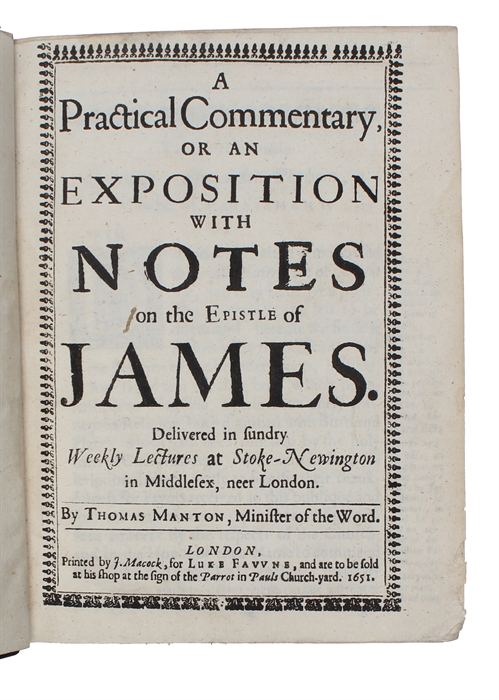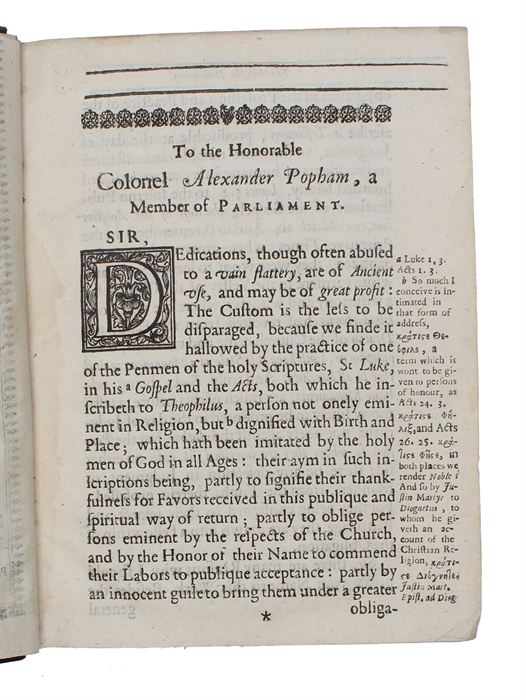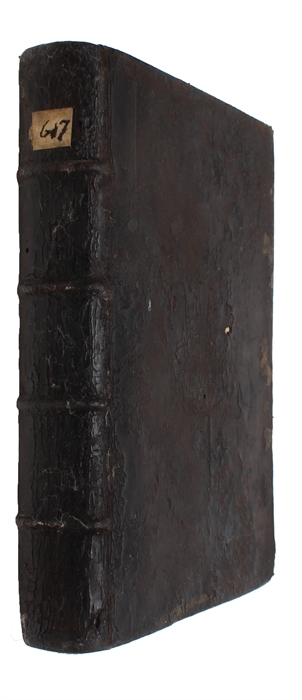“ONE OF THE BEST EXPOSITIONS EVER WRITTEN ON JAMES"
MANTON, THOMAS.
A Practical Commentary, or an Exposition with notes on the Epistle of James. Delivered in sundry weekly lectures at Stoke-Newington in Middlesex, neer London
London, Printed by J. Macock for Luke Favvne, 1651.
4to. In contemporary full calf with four raised bands. Wear to extremities. Pp. 541-606 with worm-tract in inner margin, not affecting text. Last leaves with marginal miscolouring, but generally a good copy. (18), 624 pp.
First edition of Manton’s commentary on James which not only is regarded as being his finest work but also as being “one of the best expositions ever written on James”. (Beeke, Meet the Puritans). Thomas Manton, born on March 31, 1620, in Lydeard St. Lawrence. Thomas received his early education at the free school in Tiverton, Devon. At the age of sixteen, he enrolled at Wadham College, Oxford, where he pursued his studies. He earned his Bachelor of Arts degree in 1639, followed by a Bachelor of Divinity degree in 1654, and finally, a Doctorate of Divinity degree in 1660, all from Oxford University. Ordained to the diaconate at the age of twenty in 1640 by Joseph Hall, Manton served as a lecturer at the parish church of Sowton near Exeter, Devonshire, for three years. Manton quickly rose to prominence as a leading Presbyterian figure in London, leveraging his influence to advocate for the establishment of Presbyterian church governance and to promote public peace during turbulent periods. He played a significant role in the Westminster Assembly, where he was appointed one of three clerks, and delivered numerous sermons before Parliament during the Commonwealth era. “Manton was remembered at his funeral as “the king of preachers.” Bates said that he never heard him deliver a poor sermon and commended his ability to “represent the inseparable connection between Christian duties and privileges.” Archbishop James Ussher described Manton as “a voluminous preacher” and “one of the best in England.” That is certainly evident from Manton’s many writings, most of which are sermons.” (Beeke, Meet the Puritans).
Order-nr.: 60782



